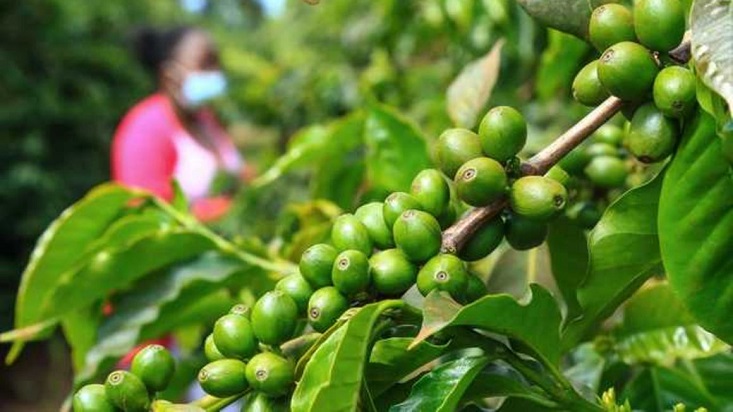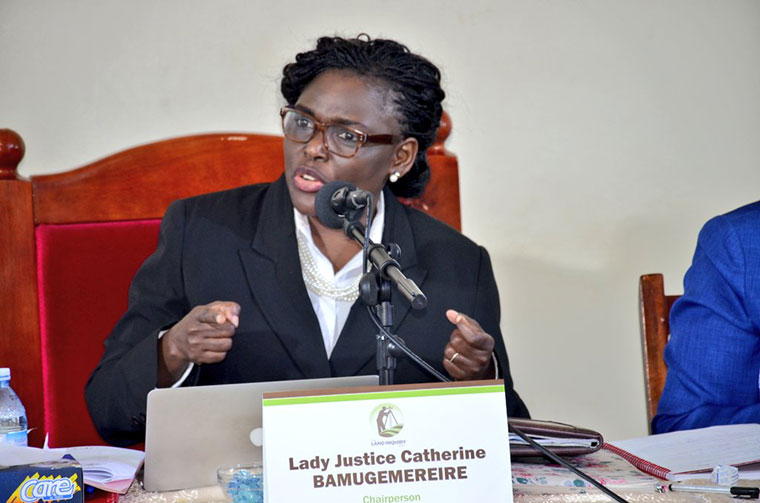Uganda wants to produce 20 million bags of coffee by 2030 with focus on value addition
Uganda is determined to achieve 20m 60kg bags of coffee by 2030 as the country employs different measures to ramp up production and productivity. This target is contained in the National Coffee Roadmap that H. E. the President Yoweri Kaguta Museveni launched in 2017.
During the 13th Annual Coffee Platform Stakeholders’ Meeting held under the theme “The Coffee Roadmap: Shaping a Sustainable Landscape for Growth and Value Addition in the Coffee Sub-sector” in Kampala on Thursday 19th October 2023, the stakeholders discussed the progress so far in implementing the National Coffee Roadmap as well as the opportunities and challenges along the coffee value chain.
Hon. Frank Tumwebaze, the Minister of Agriculture, Animal Industry and Fisheries, challenged all stakeholders to not only focus on marketing and value addition but also find ways of increasing coffee production.
“We need to leverage our competitive advantage of having enough arable land to produce more (coffee). We must aggressively campaign for planting more new coffee trees. Production is not sustainable with the old coffee trees,” Tumwebaze said.
He added that there is increased awareness of Uganda coffee in new markets which the country must take advantage of by growing more coffee to meet the demand.
Jan Sadek, the European Union Ambassador to Uganda, promised more support to Uganda’s coffee sub-sector, noting that coffee is a key link between Uganda and Europe.
“Coffee is one of the value chains we have selected to support in Uganda and we will work with all actors to sow the seeds of a sustainable coffee value chain,” Sadek said. Europe remains the main destination for Uganda’s coffee, accounting for over 60% of the country’s coffee exports.
‘Coffee Roadmap Achievable’
Dr. Emmanuel Iyamulemye, the Managing Director at UCDA, says the country has made steady progress in its efforts to achieve the 20m 60kg bags target.
He says UCDA’s efforts have seen coffee production increase to about nine million bags in 2022/2023, up from 4.7 million bags in 2014/15.
“The Coffee Roadmap is achievable; we are now close to 9 million bags of coffee in terms of production, but midway we projected to be at 15 million bags of coffee,” Iyamulemye said in an exclusive interview with Business Focus on the sidelines of the event.
He added: “We are looking at what went wrong and what went right. With our target of 20 million bags, we were supposed to bring in the economy US$1.5 trillion directly by 2030. We have actually achieved more than half the value. We are now bringing into the economy US$940.36 million.”
It should be noted that Uganda’s coffee exports for the coffee year (2022/23) totaled million bags worth US$ 940.36 million (Shs 3.52 trillion) compared to 5.86 million bags worth US$ 877.66 million in the previous coffee year (2021/22).
Dr. Iyamulemye revealed that coffee brings about Shs 62bn annually into the Consolidated Fund. According to him, UCDA has mobilized the youth, religious and cultural institutions to embrace coffee farming as the country looks forward to producing 20m 60kg bags of coffee that will see Uganda become the world’s 3rd largest coffee producer after Brazil and Vietnam.
“The cultural institutions have mobilized the population to plant coffee. The churches themselves have planted coffee on the church land and they are also mobilizing Christians and other people to embrace coffee,” he said.
On value addition at the farm level, he said farmers are increasingly picking ripe cherries and drying it on tarpaulins, thus earning more money due to improved quality.
“More traders are now involved in specialty coffee. That means they are processing the coffee very well and can now access specialty markets. We have also seen more investments going into procuring equipment to process the coffee at farm level,” Iyamulemye said, adding: “Most farmers are doing wet processing and value addition has improved the quality of the coffee.”
Challenges
Dr. Iyamulemye said that the government needs to deliberately commit funds to the coffee sub-sector if value addition is to be achieved. He says quality equipment/materials for coffee drying such as tarpaulins and solar driers remain expensive.
“We are very committed to work with the value chain actors to add value, but financing has also been going down. Despite the Shs 62 billion that goes to the Consolidated Fund, only Shs39 billion comes to the sector as funding. So, there is a mismatch. If we are to support a number of farmers to do value addition and that money is not affordable from the banks and cannot be provided for by the Ministry of Finance as a grant, value addition will continue to be a challenge,” he said.
The coffee sector, Dr. Iyamulemye said, has the potential to create thousands of jobs because it has massive opportunities along the entire value chain.
Iyamulemye adds that climate change remains a big challenge to the coffee sub-sector.
“We have faced climate change issues; irrigation remains expensive and limited for most farmers. Fertilizers are not affordable and productivity remains low, actually one of the lowest in the world,” he said.
He notes that domestic coffee consumption is growing as more Ugandans appreciate coffee’s health benefits.
Registered local coffee brands have also increased in the last 10 years.
Many more roasters and coffee shops are coming up as domestic coffee consumption picks up. At the end of the event, UCDA recognized and awarded the best-performing stakeholders in the coffee value chain.
Business Focus shall bring you the inspiring stories of the different stakeholders that were recognized and awarded. Watch the space!





